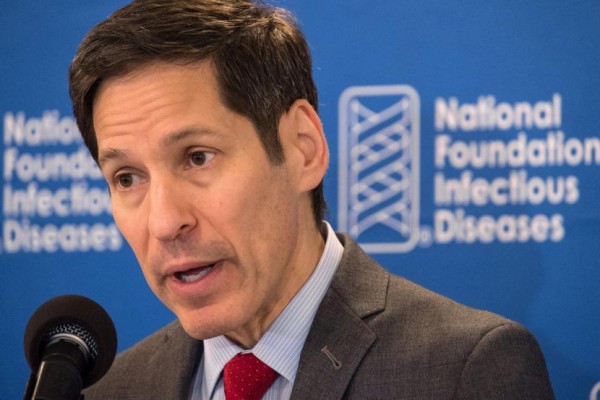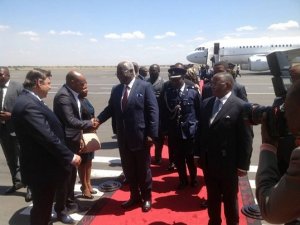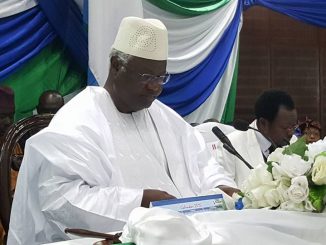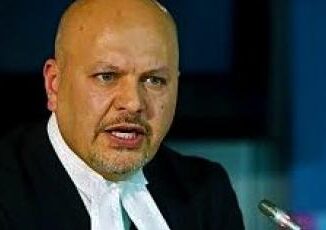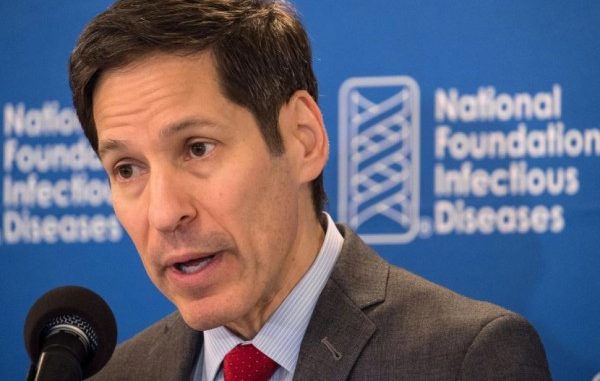
By Lara Setrakian and Kate Thomas
Ebola Deeply co-founder Lara Setrakian sat down with Dr. Tom Frieden, the director of the Centers for Disease Control and Prevention (CDC), to discuss the race to zero cases, the biggest lessons learned and the long-term impact on the affected countries.
Ebola Deeply: Thank you so much for meeting with us. Ebola case numbers are dropping quite significantly across West Africa. Is it too soon to say we’ve turned the corner?
Frieden: Well, I think it very much depends on the country and the community. In Liberia, definitely we have the upper hand. In Sierra Leone, there’s progress but still a massive number of cases. Guinea is a cautionary tale; we’ve seen cases come down on three separate occasions and we can’t let it get away this time. We have to make sure that we trace every single case, every single decedent, so that we stop the outbreak.
Ebola Deeply: Guinea, as you’ve mentioned, has seen figures come down several times, but it seems to keep coming back. How can we stop it from happening again?
Frieden: In Guinea the single largest problem is … well, it’s described as resistance but that might not be the best term for it. It’s the distance; not just the geographical distance but the cultural, philosophical and worldview distance between the government response and communities. We still have communities that don’t let responders in and we still have communities that don’t believe in Ebola. Last month I was in Guinea and spoke to a nurse who, six months into the outbreak, working at a hospital with an Ebola unit next to it, put in an IV line for a patient who had nausea, vomiting and diarrhea, and who was later diagnosed with Ebola. The nurse survived, but she’s still encountering great stigma against her at her home and at her work. So the distance between the understanding of the response and the understanding of the communities is too great. There’s a lot being done to try to bridge that distance, but more is needed.
Ebola Deeply: You’ve said you’re optimistic that we can reach zero cases in the fight against Ebola. When and how do you think that can happen?
Frieden: When: I can’t predict. I know it will take many months. How: That’s pretty clear. We need to identify every case, identify every contact, trace every contact and isolate the contacts when they get sick. That’s how Nigeria was able to stop it, that’s how Mali was able to stop it. That’s how Kenema in Sierra Leone, and Lofa county in Liberia – which had been epicenters of Ebola – have stopped it. So we know it’s stoppable even in West Africa. The challenge is to do it everywhere, as quickly as possible. It doesn’t go down gradually; it goes down rapidly. This is one of the predictions of the CDC, which has been proven by the experience. Once you get to a tipping point, cases plummet. You go from the phase of breaking the cycle of exponential growth to the phase of getting to zero.
Ebola Deeply: What do you make of the commentary that Ebola could become endemic in the region?
Frieden: I think that is the greatest threat. The greatest danger is that we let down our guard, we don’t keep up the effort and it festers, simmers and flares up. If that were to happen, it would become more and more likely to spread to other countries in Africa. It was only with enormous effort that the outbreak in Nigeria was stopped. If that outbreak had not been stopped, we could have seen many, many thousands of cases in Nigeria, and all over Africa. As long as there are any cases spreading in West Africa, that risk persists.
Ebola Deeply: Ebola seemed to take Mali by surprise back in October. Have we now had enough time to put in place preventative measures in other neighboring countries with weak health systems, like Guinea-Bissau?
Frieden: The CDC actually had a team in Mali when they had their first case there, helping them with preparedness. But a lot needs to get done; there are no shortcuts to preparedness. You need surveillance networks, you need rapid-response teams, isolation capacity, burial capacity, communications capacity … and many partners, for Guinea-Bissau ourselves, WHO (the World Health Organization), the Portuguese countries, are working with the ring countries to help strengthen their preparedness. Ebola is like a forest fire. It throws off sparks, and if they land on timber they can ignite rapidly. That’s what we’re working to avoid, both by stopping the fire at its center and by strengthening the fire resistance. In the ring countries, we’ve come a long way, but we have much further to go than we’ve come.
Ebola Deeply: What kind of long-term support do the affected countries need as figures drop?
Frieden: They need many things. First, to get to zero. Secondly, to stay at zero. And thirdly, to rebuild the health and social systems that were devastated by Ebola. It’s quite likely that more people died from the indirect effects of Ebola than from Ebola itself: from malaria, tuberculosis and HIV because of loss of treatment, immunizations not given, childbirth not done safely. There’s so much rebuilding that needs to happen and at the CDC we will focus on the public health aspect of that rebuilding.
Ebola Deeply: Several vaccines are now in development and testing. If we do have a successful vaccine, how are we going to broach the trust issue when vaccinating communities?
Frieden: This is a big challenge. We are working very intensively on vaccine trial preparations in Sierra Leone. We think it’s important to get a vaccine trial up and running so we can find out whether it works. One of the challenges is, can we get a vaccine ready fast enough before the disease goes down, to be able to see vaccine efficacy. This will be a vaccine trial that we believe will focus on healthcare workers, broadly defined, including burial workers and everyone who will be at risk.
We want to thread the needle in communication between having too much confidence in the vaccine, which might lead to relaxation of infection control, and too little confidence in the vaccine, in which case people won’t take it. Communication is so essential for every aspect of this response, including for the vaccine.
Ebola Deeply: And how do you deal with community-based trust and the cultural issues that still plague this effort?
Frieden: Each community has different issues. Providing high-quality services respectfully, engaging community leaders, listening to community leaders: These are all extremely important.
Ebola Deeply: When you look at the Ebola response over the past year, what for you are the biggest lessons learned? What do we need to do differently next time?
Frieden: Ebola shows us how important global health security work is. It reinforces that we’re all connected, and that a weak link anywhere is a risk everywhere. The U.S. has come in big with resources to address this. Other countries and the private sector have also, so that we don’t have another situation like this, with so much preventable illness, death and economic dislocation.
We need good surveillance systems around the world so we detect problems, we find things – soon after they emerge. We need rapid-response teams; one of the things we did in Liberia was to implement rapid-response capacity, so that when cases emerged in rural areas we sent a team out immediately and they were able to stop the virus within one or two generations of it. We need increased prevention wherever possible; in this case it might be a vaccine, it might be safer handling of bush meat. We need to get these pillars of global health security up in as many places as possible. We can’t predict where the next threat will come from, but if we’re not proactive, we’ll be at risk.
Ebola Deeply: The global system as a whole – if you had to give it a grade for how it did in the past year, what grade would you give it?
Frieden: I don’t think there’s any organization that’s been dealing with Ebola that can look back and say, “we did everything right.” All of us see things that we wish we had done differently. One of the biggest challenges was that of moving fast. The epidemic has been moving so quickly that to keep up with it has been very challenging.
Photo via CDC Global/Flickr

